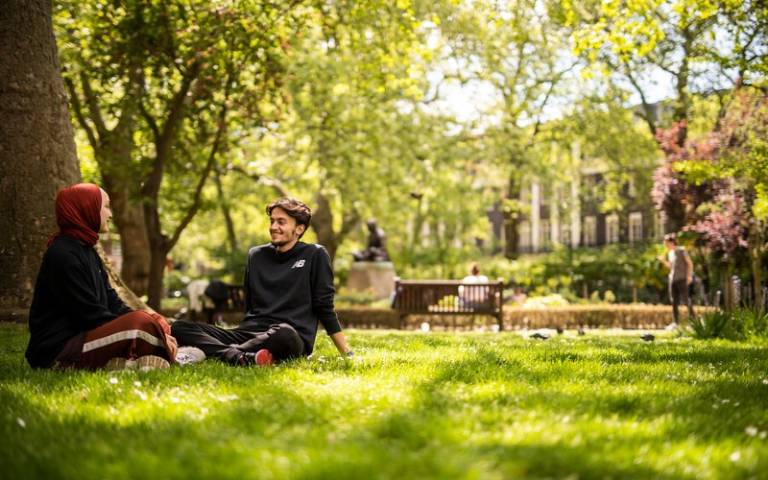VPEE Student Journalist Neeharika Nene explores the feelings that can often be associated with January and beyond. She shares her tips for combatting feelings of low morale, homesickness and stress.

Coming back to London after the holidays, home seemed even further away. I learnt only a few days into the new term that this was a shared experience. Most people around me were going through the 'January or winter blues' - a curious condition characterised by a mix of homesickness after Christmas, a lack of motivation, bouts of sadness and a distaste for the dropping temperatures and gloomy evenings.
Anoushka Kaur Ichpanani, a law student at UCL, remarked, "London can be so overawing, it's easy to get zoned out. I isolated myself a lot during winter break, which took a toll on my mental health, and the lack of sun didn't help."
This was one of the first things I learned about the UK - one tends to constantly bring up the weather. And for good reason, especially during London winters, what with no sunlight for days, gloomy skies, harsh winds and a dark horizon at four in the afternoon. Seasonal depression was a term I had only seen in Instagram memes and online articles; but it seems obvious and natural that weather patterns would influence our mental state.
"I find it really difficult around this time of year," Laila Strachan, a fellow MA student at UCL admitted. "It gets dark earlier, which for me, makes me feel like I need to sleep at 5 pm! From November (around Thanksgiving) to New Year's Day, I am mostly with family or doing celebratory things with friends, which is great, but this is not my normal routine that helps my mental health. When January comes around, the high disappears and reality sets in, and it can be hard to start again."
I agreed completely, and felt the desperate need to hit 'reset' with something that would get me out of the rut I was in. That was how I found myself at the threshold of an experience I had always feared - going to an event alone. I picked out two things from UCL Student Support and Wellbeing's Beat the January Blues Campaign, one that I'd never tried before and another that usually appealed to me.
I walked into the first, the Gong Siesta Sound Bath (led by the lovely and enigmatic Jarvia Foxter), not knowing what to expect, and doubly suspicious at the prospect of lying down on a yoga mat for thirty minutes. All I knew from skimming the website was that the gong's frequencies create a state of relaxation and vibrational healing. But as we got started, I found myself letting go of the biggest barrier in my mind - the worry that this would not work. The constant inner monologue, along with its anxieties and apprehensions, was put to rest for those thirty minutes.
The more daunting of the two events, however, turned out to be the Comedy Night. This was clearly a social event, and everyone in attendance had come in a group. It felt awkward at first, but I got myself a pilsner, and decided to make the most of it. What followed was an evening of laughs, at the end of which the girl sitting next to me struck up a conversation and said she applauded the fact that I had come alone. A brief encounter like that is sometimes enough to remind you that despite all the things you can't control, it's what you do for yourself that makes the biggest difference. And, for the most part, no one cares that you showed up alone to a social event.
I came out of that experience feeling so much better, that I decided to put down a list of things that help me and other UCL students make time and space for ourselves during an emotionally challenging time. Student Support and Wellbeing (SSW) are running similar events during the Exam Season and I have linked them too.






